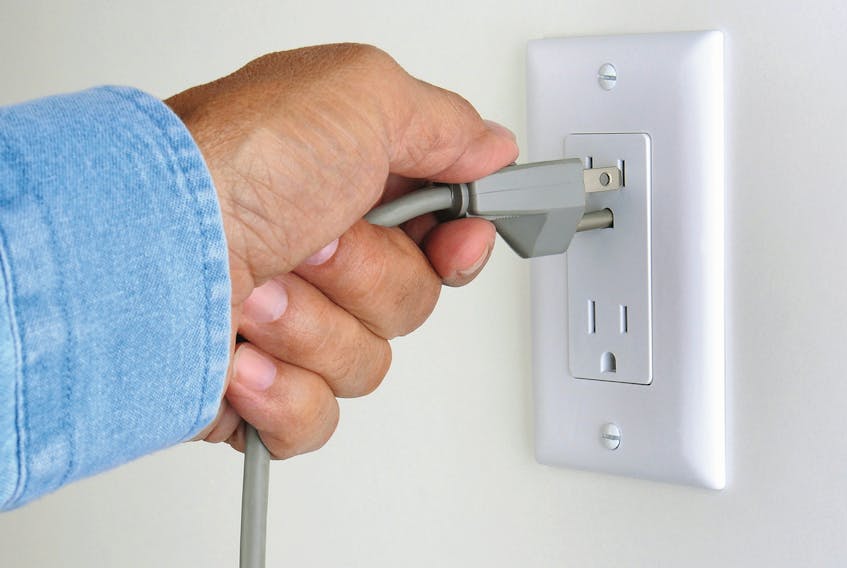This year’s electricity rates are set but let us look toward 2022.
A two-year Island Regulatory and Appeals Commission (IRAC) review of the Maritime Electric (MECL) 2018 Electricity Rate Application, that requires a five-page content list of exchanged documents for a reference file of over 5,000 pages, has achieved nothing!
The approval issued two weeks ago by IRAC for a three per cent electricity rate increase from January 2021 to February 2022 has simply replaced the original MECL request in November 2018 for an annual rate increase of around one per cent for three years, again to February 2022. Many of the documents exchanged between IRAC and MECL disappointingly demonstrate the MECL tenacity to protect and maintain the annual profit for shareholders despite the impact of COVID-19 upon other P.E.I. businesses and customers. A revenue deficit of $2.75 million would have resulted in a temporary decline in 2020 profit for MECL from the maximum allowed 9.35 per cent down to 7.88 per cent or from a record $14.8 million down to $12 million. MECL’s positioning of a 7.88 per cent return as being unacceptable means that customers are now due to pay off the $2.75 million deficit within the 2021 rates. Even the additional $350,000 net cost of COVID-reduced revenue for 2020 is being paid by customers; shareholders will just scoop up their $14.8 million.
Unfortunately, there are more cost liabilities to come for customers to pay down. These must increase rates again starting February 2022:
- The 2021 capital budget application submitted to IRAC in August 2020 at $42.4 million is forecast to increase rates by 1.56 per cent; it is unclear when the required additional increase in rates will occur.
- Due around August 2021 will be the 2022 capital budget application. As for all past years it is safe to assume that this budget will not be less than the previous budget; a further 1.56 per cent increase will therefore be folded into the 2022 rates.
- The Charlottetown thermal generator system is in the process of being dismantled. The current estimate for the unfunded cost of this project is currently $9.65 million. The IRAC/MECL intention to include this cost within customer rates from 2022 to 2026 will add another annual one per cent rate increase for the next five years.
In essence, we can expect at least a four per cent rate increase in early 2022 unless more cost deferrals to future years are created.
The final disappointment from this 2018 to 2020 round of rate application was the absence of a revised customer billing scheme for electricity. There are long-standing issues with the current rate structure – an overdue program to reduce peak load demand, removing the unfairness between general service customers, who are paying 20 per cent more than the cost, and industrial farmers, who are paying 20 per cent less than the cost, and phasing out the contentious residential “second block”. It is not at all obvious why IRAC has allowed MECL, over the last three years, to ignore the multiple directives to introduce the required new rate structure. The latest delaying tactic is the MECL need to hold public consultation sessions prior to submitting a new rate structure to IRAC. The reality of such a futile exercise is that the detailed aspects of revenue-to-cost (RTC) equity, new tariffs to start controlling peak load and the second block removal will only engage an inevitably strong industrial farming lobby. Surely it is IRAC’s prerogative to organize and collate public input at first hand when there are proposed changes that affect most electricity customers? Also, in support of our government’s net-zero-energy environment objective, should we not expect IRAC to ensure that the inevitable increase in the use of electricity is affordable?
Roger King, P. Eng., MBA, is a retired electrical engineer with a keen interest in the unique P.E.I. energy planning and regulation practices. He and his wife live in Hunter River.









